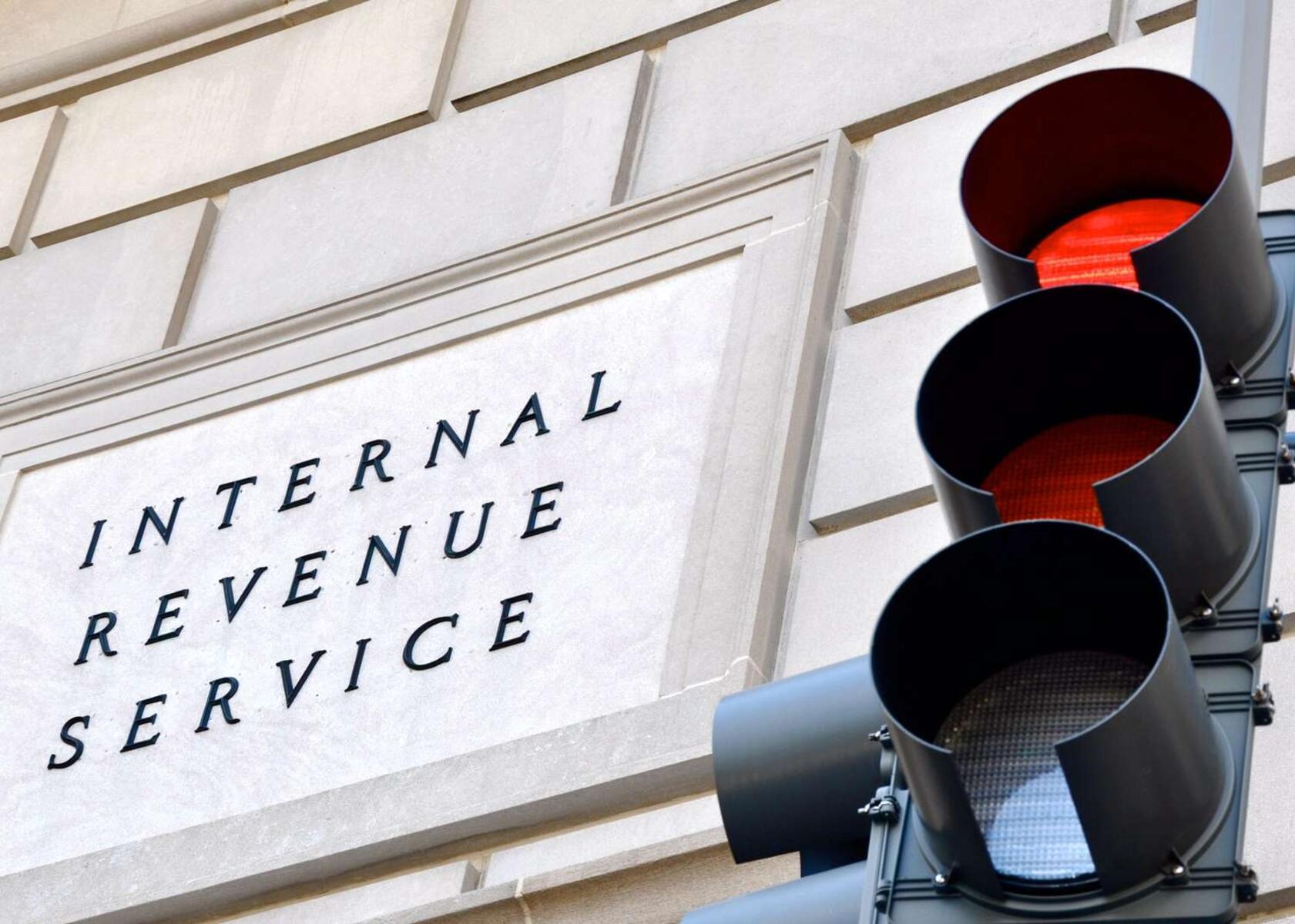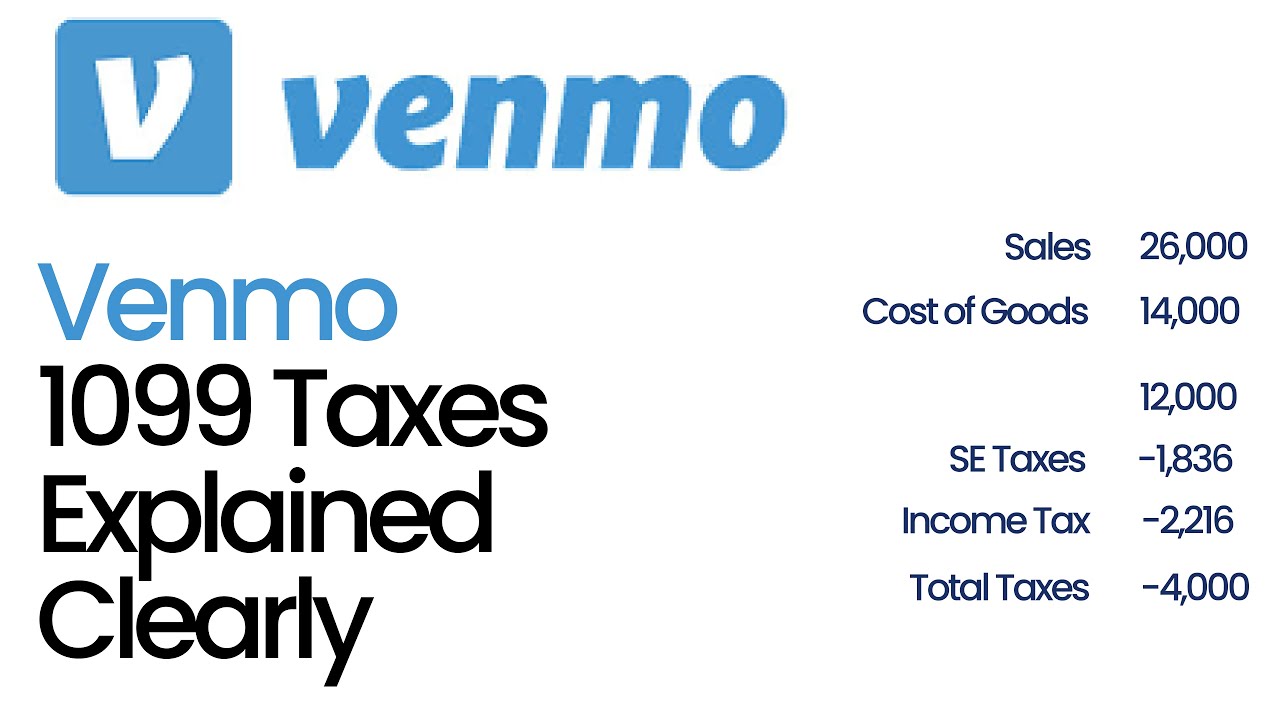Introduction
Welcome to the world of money transfers, where funds are sent from one person or entity to another, often across borders and for various reasons. Whether you’re sending money to support family abroad, making a business transaction, or purchasing property in a foreign country, it’s important to understand the regulations and reporting requirements surrounding these transactions.
The Internal Revenue Service (IRS) in the United States is responsible for overseeing and enforcing tax laws, including regulations related to money transfers. The IRS has implemented a system to track and monitor money transfers to ensure compliance with tax obligations and prevent money laundering, fraud, and other illegal activities.
In this article, we will delve into the intricacies of how the IRS tracks money transfers and the thresholds that trigger reporting to the IRS. We will also explore the types of financial institutions that report money transfers, the reporting time frames they adhere to, and the penalties for failing to report. Furthermore, we will address common misconceptions about money transfer reporting and provide guidance on how to ensure compliance with IRS requirements.
It’s important to note that the information provided in this article is based on the current understanding of IRS regulations, which may be subject to change. Therefore, it is always advisable to seek professional advice or consult the latest IRS guidelines to ensure compliance with the most up-to-date regulations.
Now, let’s dive into the world of money transfer reporting and gain a comprehensive understanding of the rules and requirements set forth by the IRS.
How Does the IRS Track Money Transfers?
The IRS has implemented a robust system to track and monitor money transfers, allowing them to identify potential instances of tax evasion, money laundering, and other illegal activities. Here are some key methods the IRS uses to track money transfers:
Reporting by Financial Institutions: Financial institutions, such as banks, credit unions, and money transfer companies, are required by law to report certain transactions to the IRS. These reports, known as Currency Transaction Reports (CTRs) and/or Suspicious Activity Reports (SARs), provide crucial information about the sender, recipient, and amount of the transaction. This reporting is mandatory for transactions that meet or exceed specific thresholds set by the IRS.
Electronic Funds Transfer (EFT) Information: The IRS collaborates with financial institutions to obtain electronic funds transfer information. This includes details such as the sender’s and recipient’s account numbers, transaction dates, and amounts. By analyzing this data, the IRS can identify patterns and anomalies that may warrant further investigation.
Information Sharing Agreements: The IRS has established information sharing agreements with various government agencies, both domestically and internationally. These agreements allow for the exchange of financial data and intelligence, enabling the IRS to access additional information about money transfers and cross-reference it with tax filings and other relevant data.
Data Analytics and Technology: The IRS utilizes advanced data analytics and technology to detect and analyze patterns and trends in money transfer data. Sophisticated algorithms and models help identify potential tax evasion schemes, including transactions designed to move funds offshore or disguise the true nature of the underlying business or income.
International Cooperation: Money transfers involving foreign jurisdictions can pose challenges for the IRS. However, the IRS actively collaborates with tax authorities around the world through mutual assistance agreements and international tax treaties. This cooperation facilitates the exchange of information and enhances the IRS’s ability to track and trace funds across borders.
By employing these methods and leveraging the cooperation of financial institutions and other agencies, the IRS can effectively track and monitor money transfers, ensuring compliance with tax laws and minimizing the risk of financial crimes.
Thresholds for Reporting Money Transfers to the IRS
The IRS has established specific thresholds that trigger the reporting of money transfers by financial institutions. These thresholds are integral to determining which transactions are subject to reporting requirements. It’s important to note that the thresholds apply to both domestic and international transfers. Let’s explore these thresholds in detail:
Currency Transaction Report (CTR) Threshold: Financial institutions are required to file a Currency Transaction Report (CTR) with the IRS for any cash transaction that exceeds $10,000 in a single business day. This threshold applies to both deposits and withdrawals, ensuring that large cash transactions are carefully monitored. The IRS uses these reports to identify potential money laundering and tax evasion activities.
Suspicious Activity Report (SAR) Threshold: Financial institutions are also required to file a Suspicious Activity Report (SAR) with the IRS for any suspicious transaction involving $5,000 or more. This threshold is considerably lower than the CTR threshold and is intended to capture transactions that may be indicators of criminal behavior, even if they do not reach the $10,000 threshold. Suspicious activity could include transactions that involve structuring to avoid reporting requirements, transactions with no apparent lawful purpose, or those inconsistent with a customer’s known activity.
Foreign Bank Account Report (FBAR) Threshold: In addition to the CTR and SAR thresholds, individuals or entities with financial accounts outside the United States may have additional reporting requirements. The Foreign Bank Account Report (FBAR) requires reporting when the aggregate value of all foreign financial accounts exceeds $10,000 at any time during the calendar year. This report is separate from the CTR and SAR filings and is filed directly with the Financial Crimes Enforcement Network (FinCEN).
It’s crucial to understand that these thresholds apply cumulatively. For example, if a financial institution receives multiple cash deposits or withdrawals that individually fall below the $10,000 limit but exceed that amount when combined, they are still obligated to file a CTR with the IRS.
Financial institutions play a vital role in reporting money transfers that exceed these thresholds. By adhering to these reporting requirements, they help ensure transparency and accountability in financial transactions, while also assisting the IRS in identifying potential tax evasion and illegal activities.
Types of Financial Institutions that Report Money Transfers
Various types of financial institutions are responsible for reporting money transfers to the IRS. These institutions are obligated by law to monitor and report certain transactions to ensure compliance with tax regulations and combat financial crimes. Let’s explore the key types of financial institutions that engage in money transfer reporting:
Banks: Banks, including commercial banks, savings and loan associations, and credit unions, are at the forefront of money transfer reporting. These institutions are heavily regulated and play a crucial role in the financial system. They are required to file Currency Transaction Reports (CTRs) and Suspicious Activity Reports (SARs) with the IRS for qualifying transactions that meet or exceed specific thresholds. Banks have robust systems in place to monitor and identify potentially suspicious activities, ensuring the integrity of the financial system.
Money transmission businesses: Money transmission businesses, also known as money services businesses (MSBs), provide services such as wire transfers, check cashing, and currency exchange. These businesses are subject to strict regulations governing money transfer reporting. MSBs must comply with reporting requirements set by the IRS, including the filing of CTRs and SARs for qualifying transactions. This ensures that money transfer activities conducted through these businesses are closely monitored and reported to the appropriate authorities.
Virtual currency exchanges: With the rise of cryptocurrencies like Bitcoin, virtual currency exchanges have emerged as a popular platform for money transfers. Virtual currency exchanges function as intermediaries, facilitating the exchange of traditional currency for virtual currencies and vice versa. These exchanges are required to follow anti-money laundering (AML) regulations, which include reporting certain transactions to the IRS. The reporting requirements for virtual currency exchanges aim to maintain transparency and accountability in the rapidly evolving virtual currency ecosystem.
Brokerages and securities firms: Brokerage firms and securities companies, which specialize in the buying and selling of stocks, bonds, and other securities, often handle large financial transactions. While their primary focus may not be money transfers, these firms are still subject to reporting requirements regarding qualifying transactions. Similar to other financial institutions, they are obligated to file CTRs and SARs with the IRS when transactions meet or exceed the specified thresholds.
It’s important to note that these are just a few examples of the types of financial institutions involved in money transfer reporting. Other entities, such as casinos, travel agencies, and even retail businesses engaging in certain high-value transactions, may also have reporting obligations depending on the specific circumstances and regulatory requirements.
By engaging these various financial institutions in money transfer reporting, the IRS can maintain oversight of a broad spectrum of transactions and detect potential tax evasion, money laundering, and other financial crimes.
Reporting Time Frame for Financial Institutions
Financial institutions play a crucial role in reporting money transfers to the IRS, facilitating transparency and compliance with tax regulations. But how quickly do these institutions need to report the relevant information? Let’s explore the reporting time frames that financial institutions must adhere to:
Currency Transaction Reports (CTRs): When a cash transaction meets or exceeds the $10,000 threshold, financial institutions must file a Currency Transaction Report (CTR) with the IRS. According to the Bank Secrecy Act (BSA), financial institutions have 15 calendar days to submit the CTR after the transaction occurs. This time frame allows financial institutions to gather the necessary details, verify the accuracy of the information, and ensure compliance with reporting requirements.
Suspicious Activity Reports (SARs): Financial institutions are required to file a Suspicious Activity Report (SAR) with the IRS when they encounter transactions that appear suspicious or potentially related to criminal activity, even if they do not reach the $10,000 threshold. The specific time frame for SAR reporting varies based on the circumstances. In most cases, financial institutions are required to file a SAR within 30 calendar days of detecting a suspicious activity. However, if the institution determines that immediate attention is warranted, they can file an expedited SAR within 15 calendar days.
Foreign Bank Account Reports (FBARs): Individuals or entities with financial accounts outside the United States are required to file a Foreign Bank Account Report (FBAR) separately from CTRs and SARs. The FBAR filing deadline is April 15th of the year following the calendar year being reported. However, an automatic extension until October 15th can be requested if additional time is needed. This reporting requirement ensures that foreign financial accounts are properly disclosed to the IRS.
While financial institutions have specific time frames for reporting money transfers, it’s important to note that they may implement internal procedures that allow for more immediate reporting. Prompt reporting enables the IRS to analyze and act upon the information efficiently, ensuring effective monitoring of financial transactions.
It’s worth mentioning that financial institutions face penalties for non-compliance or delayed reporting. These penalties can range from monetary fines to legal consequences, highlighting the importance of adhering to the reporting time frames set forth by the IRS and other regulatory authorities.
By establishing clear reporting time frames, financial institutions and the IRS collaborate to ensure timely and accurate reporting of money transfers, supporting the overall goal of maintaining the integrity and transparency of the financial system.
Penalties for Failure to Report Money Transfers
Reporting money transfers to the IRS is not optional; it is a legal requirement aimed at ensuring compliance with tax regulations and combating financial crimes. Failure to report qualifying transactions can result in penalties for both individuals and financial institutions. Let’s explore the potential consequences for failing to report money transfers:
Individual Penalties: Individuals who fail to report qualifying money transfers may face significant penalties imposed by the IRS. The penalties vary based on the specific violation and can include both civil and criminal penalties. Civil penalties can range from monetary fines to asset seizures, while criminal penalties can lead to imprisonment and substantial fines. It’s important to note that penalties may be imposed not only for failure to report but also for willful evasion of reporting requirements or fraudulent activities associated with money transfers.
Financial Institution Penalties: Financial institutions have a crucial role in reporting money transfers, and the IRS imposes penalties on institutions that fail to fulfill their reporting obligations. Penalties can vary based on the severity of the violation, ranging from monetary fines to the revocation of licenses or authorizations to operate. Financial institutions may be subject to separate penalties for each instance of non-compliance, emphasizing the importance of timely and accurate reporting.
Reputational Damage: In addition to monetary fines and legal consequences, the failure to report money transfers can lead to severe reputational damage for both individuals and financial institutions. Non-compliance with reporting requirements can erode trust in the integrity of financial transactions and may result in significant reputational harm that can impact future business endeavors or personal financial well-being.
Loss of Privileges: Individuals and financial institutions that fail to comply with reporting requirements may face the loss of certain privileges or benefits. For example, financial institutions may lose their ability to participate in government programs or receive federal funding, while individuals may be subjected to heightened scrutiny and monitoring by financial institutions, making it more challenging to engage in financial transactions efficiently.
It is crucial to understand that ignorance of reporting requirements is not a valid defense. It is the responsibility of individuals and financial institutions to be informed and comply with the regulations set forth by the IRS and other regulatory authorities.
To avoid penalties and maintain compliance, it is essential to stay updated with the latest reporting requirements, consult professional advice when needed, and ensure that accurate and timely reporting of money transfers is carried out in accordance with the established regulations.
Will All Money Transfers Be Reported?
While the IRS requires the reporting of certain money transfers, it’s important to recognize that not all transfers will be reported. The reporting requirements are based on specific criteria and thresholds, aiming for a balance between ensuring compliance with tax laws and minimizing unnecessary reporting burdens. Let’s explore the factors that determine whether a money transfer will be reported:
Thresholds: The IRS establishes specific thresholds that trigger the reporting obligation for financial institutions. For example, cash transactions exceeding $10,000 in a single business day or suspicious transactions of $5,000 or more require reporting. These thresholds help identify high-value transactions or activities that may indicate potential tax evasion or criminal behavior. Money transfers below these thresholds generally do not trigger reporting requirements.
Transaction Types: The reporting obligations are typically limited to certain types of transactions. For example, financial institutions are primarily required to report cash transactions, whether they involve deposits or withdrawals. Other types of transactions, such as transfers between personal bank accounts or non-cash transactions, may not have a reporting requirement unless they meet specific thresholds or involve suspicious activity.
Financial Institution Type: The scope of reporting obligations can also differ based on the type of financial institution involved. Banks, credit unions, money transmission businesses, and virtual currency exchanges are generally subject to reporting requirements. However, other entities that engage in financial transactions, such as retail businesses or travel agencies, may not have the same reporting obligations unless they meet specific criteria.
Geographical Considerations: Reporting requirements can also vary based on geographic location. Most reporting obligations apply to transactions that occur within the United States, regardless of whether they involve domestic or international parties. However, different rules and thresholds may be applied for transactions that occur entirely outside the United States or involve foreign financial institutions. International cooperation among tax authorities facilitates the exchange of financial information in cross-border transactions.
It is important to recognize that even if a money transfer falls below the reporting thresholds or does not meet the specific criteria for reporting, it does not absolve individuals or financial institutions from their tax obligations. All income and financial activities must be accurately reported on tax returns, regardless of whether a specific money transfer triggers a reporting requirement.
Understanding the factors that determine whether a money transfer will be reported can help individuals and businesses ensure compliance with reporting obligations while avoiding unnecessary reporting burdens. It is advisable to consult professional advice or refer to the IRS guidelines to determine the specific reporting requirements applicable to your situation.
Common Misconceptions about Money Transfer Reporting
Money transfer reporting can be a complex topic, and there are several common misconceptions that can lead to misunderstandings about the requirements and implications. Let’s debunk some of these misconceptions:
Misconception 1: All money transfers are automatically reported to the IRS. This is not true. Not all money transfers are subject to reporting requirements. Reporting obligations are triggered by specific thresholds or criteria, such as cash transactions exceeding $10,000 or suspicious activities of $5,000 or more. Transfers below these thresholds or involving non-cash transactions may not require reporting, although proper tax reporting is always necessary.
Misconception 2: Only large corporations need to worry about money transfer reporting. Money transfer reporting requirements apply to a wide range of individuals and businesses, not just large corporations. Financial institutions, including banks, credit unions, and even virtual currency exchanges, are among the entities responsible for reporting qualifying transactions. Additionally, individuals with foreign financial accounts may have their own reporting requirements under the Foreign Bank Account Report (FBAR).
Misconception 3: Reporting money transfers means you are under investigation or suspected of criminal activity. It is a common misconception that the mere act of reporting a money transfer implies suspicion or being under investigation. Financial institutions are required to report certain transactions to ensure compliance with tax laws and combat financial crimes, but reporting itself does not automatically imply wrongdoing. It is simply a part of the regulatory framework and helps establish transparency and accountability in financial transactions.
Misconception 4: Money transfer reporting only applies within the United States. Money transfer reporting requirements can extend beyond domestic transactions. Financial institutions are often required to report international transactions and may have specific rules and thresholds for cross-border transfers. International cooperation among tax authorities allows for the exchange of financial information to combat tax evasion and money laundering globally.
Misconception 5: Non-compliance with money transfer reporting goes unnoticed. Non-compliance with money transfer reporting requirements can have serious consequences. The IRS and other regulatory authorities employ various means to identify potential violations, including data analytics, information sharing agreements, and cooperation with financial institutions. Failure to comply with reporting obligations can result in penalties, legal consequences, and reputational damage for both individuals and financial institutions.
It is important to stay informed about the specific reporting requirements that apply to your situation. Consulting professional advice or referring to the latest IRS guidelines can help ensure compliance and address any misconceptions or uncertainties surrounding money transfer reporting.
How Can I Ensure Compliance with IRS Reporting Requirements?
Compliance with IRS reporting requirements is essential to uphold transparency, prevent financial crimes, and avoid penalties. To ensure compliance, consider the following steps:
Understand the Reporting Obligations: Familiarize yourself with the IRS reporting requirements that apply to your situation. This includes understanding the thresholds for reporting, the types of transactions subject to reporting, and the reporting time frames. Stay updated on any changes in regulations or guidelines to ensure ongoing compliance.
Keep Accurate Records: Maintain detailed and accurate records of your financial transactions, including money transfers. Ensure that all relevant information, such as amounts, dates, and recipients, is properly documented. Organized records will facilitate reporting and help you meet your obligations more effectively.
Work with Reputable Financial Institutions: Choose reputable financial institutions that have a strong track record of compliance with reporting requirements. Ensure that the institution you use for money transfers has robust systems in place to comply with IRS regulations and regularly reviews and updates their reporting processes.
Consult with Tax Professionals: Seek professional advice from tax professionals, such as accountants or tax attorneys, who specialize in IRS reporting requirements. They can provide guidance tailored to your specific situation, answer your questions, and help ensure proper compliance with reporting obligations.
Stay Current with IRS Guidance: Regularly review IRS publications, guidelines, and updates to stay informed about any changes in reporting requirements. The IRS provides resources and information to help taxpayers navigate the reporting process. Utilize these resources to ensure compliance and stay up-to-date with any new developments.
Review Statements and Reports: Pay close attention to account statements, tax forms, and reports received from financial institutions. Review these documents for accuracy and completeness, ensuring that all relevant transactions are properly reported. Promptly address any discrepancies or issues with the financial institution to rectify errors and avoid potential compliance problems.
File Required Reports and Disclosures: Submit any required reports or disclosures directly to the IRS or the appropriate regulatory authorities. Be aware of the specific filing deadlines and procedures. Examples of such reports include the Currency Transaction Report (CTR), Suspicious Activity Report (SAR), and Foreign Bank Account Report (FBAR). Ensure that all necessary information is included and filed within the designated time frames.
Maintain Open Communication: Communicate openly and honestly with financial institutions, tax professionals, and the IRS. Promptly address any questions or concerns regarding reporting requirements. Open communication helps ensure that you are accurately fulfilling your reporting obligations and can prevent potential issues from escalating.
By following these steps, you can make sure you remain compliant with IRS reporting requirements. Remember that reporting is not only a legal obligation but also contributes to a transparent and reliable financial system, benefiting both individuals and society as a whole.
Conclusion
Understanding and complying with IRS reporting requirements is crucial when it comes to money transfers. Whether you are an individual or a financial institution, adhering to these regulations helps maintain transparency, combat financial crimes, and ensure compliance with tax laws. By familiarizing yourself with the reporting thresholds, types of transactions subject to reporting, and the specific reporting obligations applicable to your situation, you can navigate the complex landscape of money transfer reporting with confidence.
It’s important to debunk common misconceptions surrounding money transfer reporting, such as the belief that all transactions are automatically reported or that reporting implies suspicion or wrongdoing. By dispelling these misconceptions, you can approach reporting requirements with a clearer understanding of their purpose and implications.
To ensure compliance, it is essential to keep accurate records, work with reputable financial institutions, consult with tax professionals, and stay informed about the latest IRS guidance and updates. By taking these steps, you can effectively meet your reporting obligations and mitigate the risk of penalties, legal consequences, and reputational harm.
Remember that reporting is not just a bureaucratic requirement, but a vital component in upholding the integrity of the financial system. It enables the IRS and regulatory authorities to monitor financial transactions, detect potential tax evasion and financial crimes, and maintain transparency in the flow of funds.
In the ever-evolving landscape of money transfers, staying informed, proactive, and compliant is key. By doing so, you can navigate the reporting requirements with confidence and contribute to a financial environment that is transparent, accountable, and secure for all stakeholders involved.

























